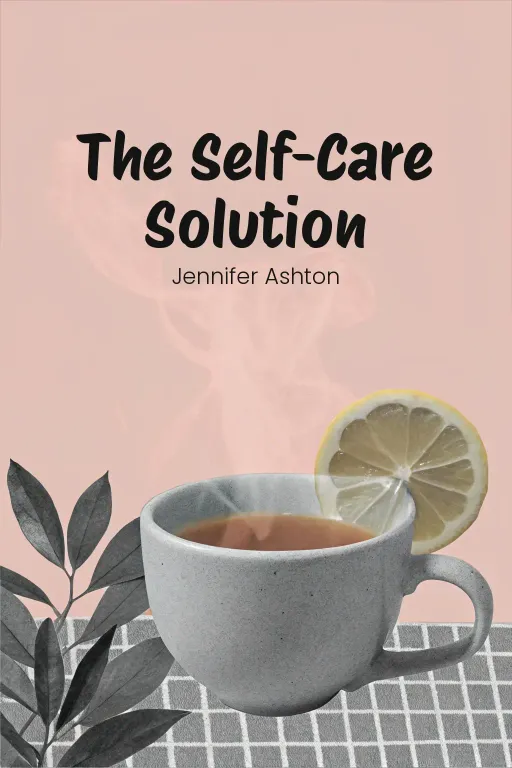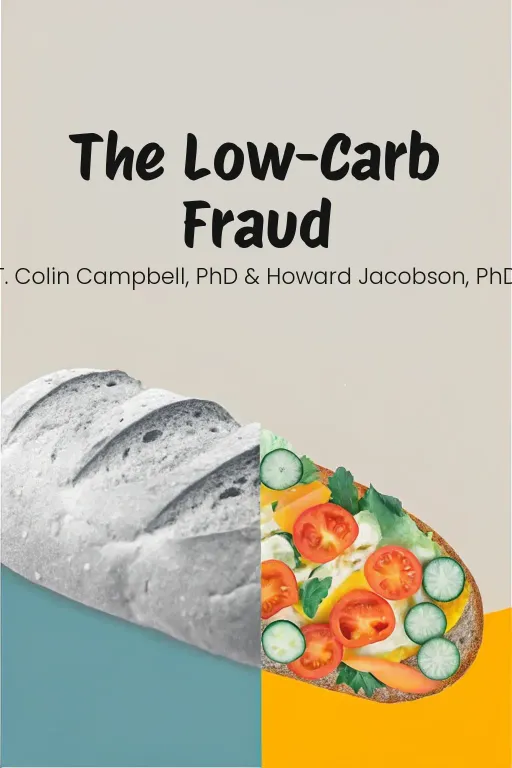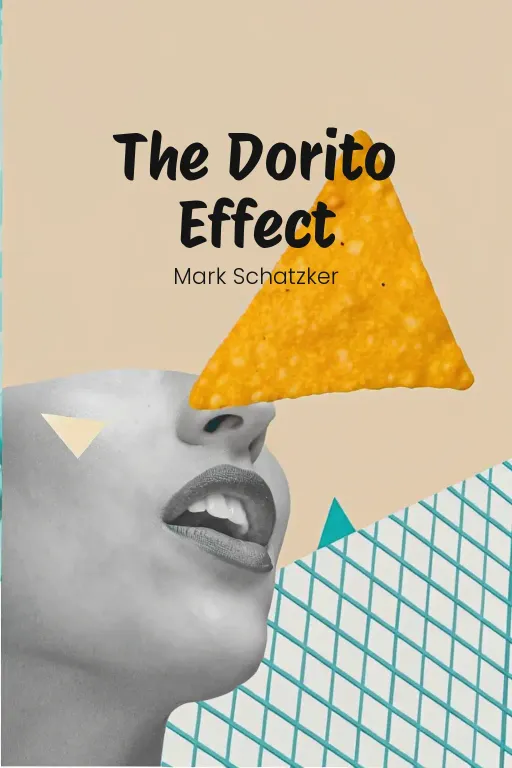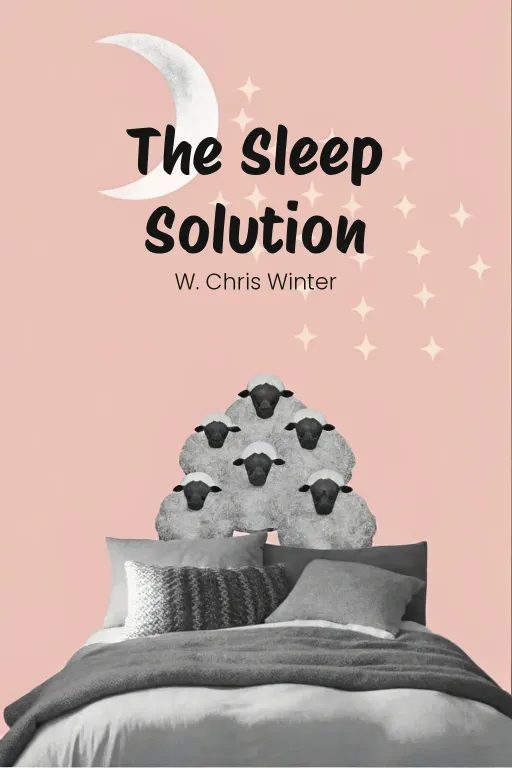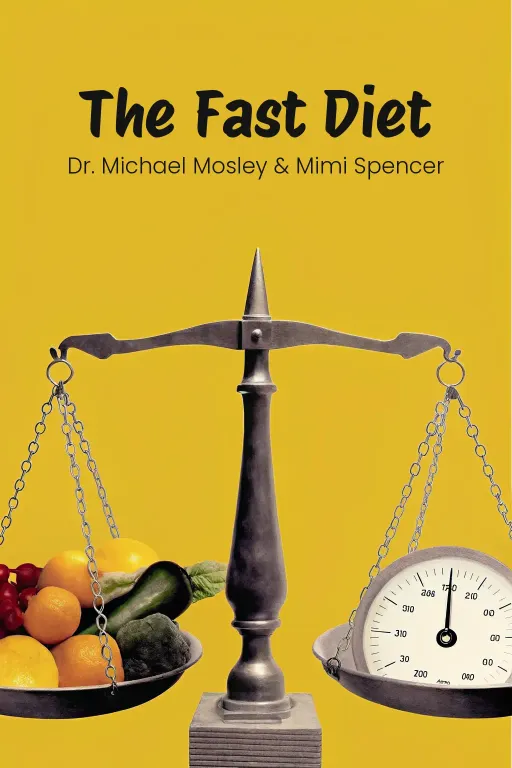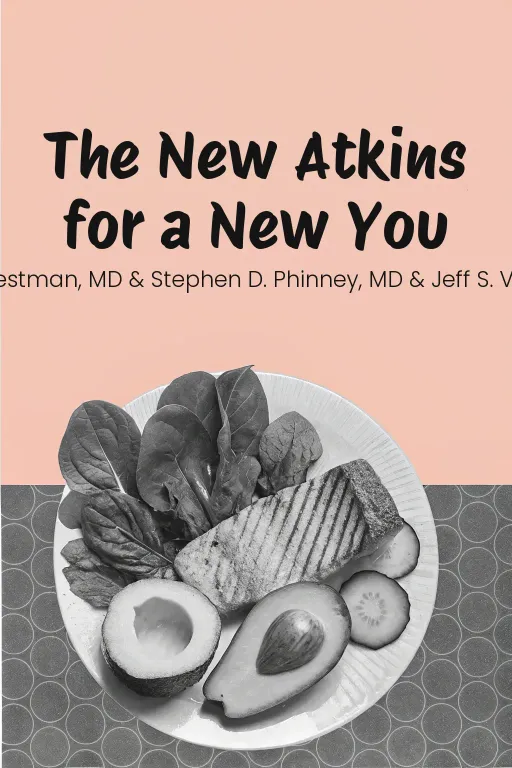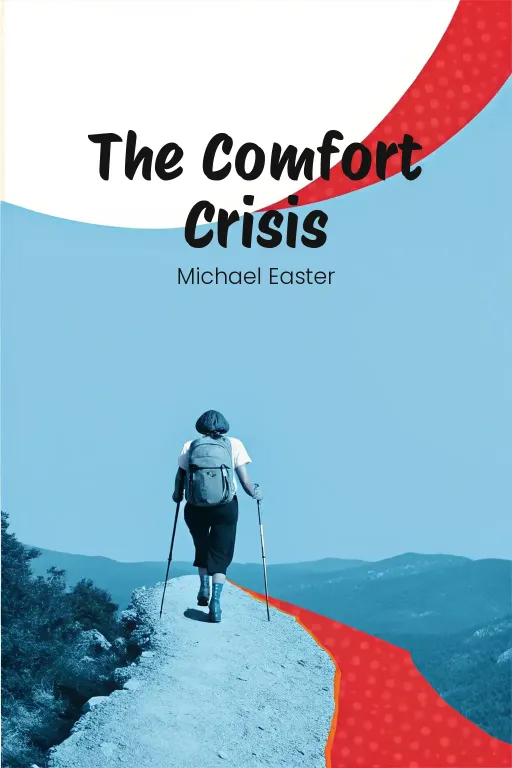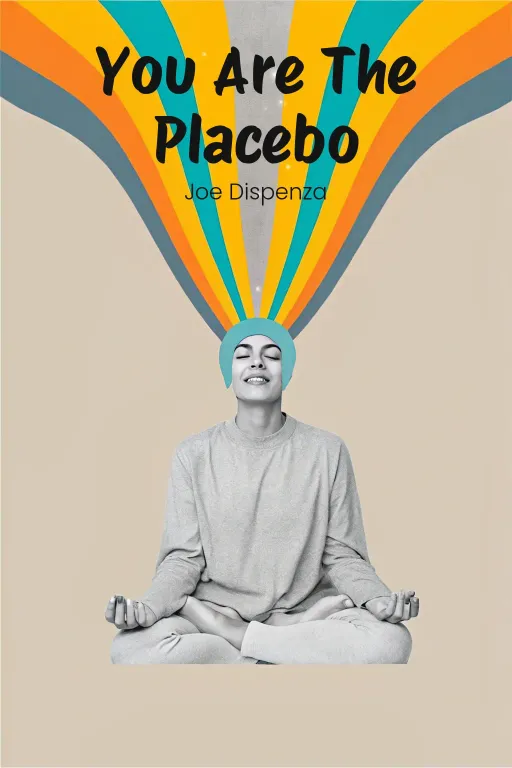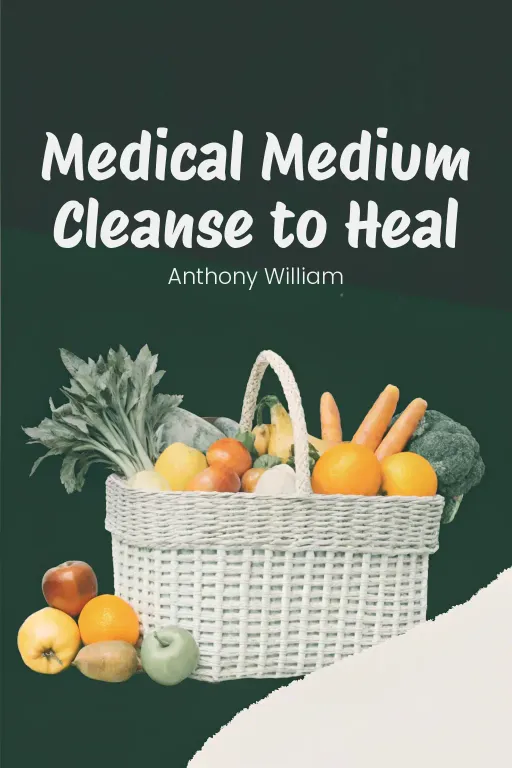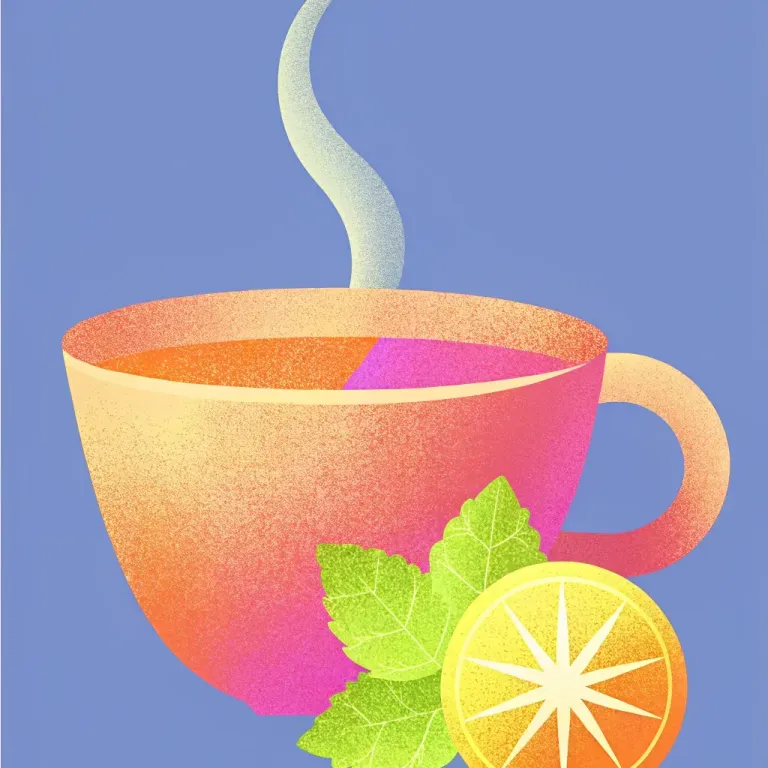
Self-Care: Fuel Your Life, Not Just Fix It
Podcast by Beta You with Alex and Michelle
A Year of Becoming Happier, Healthier, And Fitter — One Month at a Time
Introduction
Part 1
Alex: Hey everyone, welcome back! Today, we're tackling something super important: self-care. And I want you to ask yourself a really honest question: When did you “last” do something purely for “you”? Not work, not the family, not just crossing things off your to-do list. Just... you. If you had to stop and think about it, you're in the right place. Michelle: Okay, Alex, but let's be real. “Self-care” has been the buzzword “du jour” for ages now. I'm starting to think it's just another marketing trick. How many bath bombs does one person “really” need, you know? Alex: I hear you, Michelle. That's why I'm excited about this book. We're diving into Dr. Jennifer Ashton's year-long self-care experiment, which she documented in her book. It's not about quick fixes or luxury spa days. It's about making real, sustainable changes that actually fit into your day-to-day life. Michelle: Yeah, the book's concept is pretty interesting: Dr. Ashton took on monthly challenges; everything from ditching alcohol in January to seriously upgrading her sleep and even intentionally laughing. It's structured but also super personal, transforming the abstract idea of "wellness" into something you can track and measure. Alex: Exactly! So here's what we're going to cover today: First, we need to understand why self-care is so much more than just a trend. Then, we'll break down those monthly challenges – small, manageable steps to transform your physical and emotional habits. Finally, the big picture: What happens when self-care becomes a regular part of your life? Think of it like building a path, one brick at a time, to a life that's truly balanced and fulfilling. Michelle: So, whether you cringe at the word "mindfulness" or you're already writing in a gratitude journal every morning, this episode’s for you. Ready to jump in? Alex: Absolutely, let's do it!
The Importance of Self-Care
Part 2
Alex: Okay, so let's dive in – self-care isn't some luxury spa day; it's fundamental. Dr. Jennifer Ashton “really” hits this home. She opens up about a “really” difficult time, the loss of her ex-husband, and how that tragedy forced her to rethink everything, especially how she was taking care of herself. Michelle: Wow, that's a heavy start, but a powerful one. It's so common to see self-care as, well, a bit self-indulgent, isn't it? Something you get around to after everything else is handled. But she's framing it as essential for survival, basically. Alex: Exactly. She admits to doing what so many of us do – putting everyone else first, thinking we're being "strong" or whatever. But she realized that when she was emotionally drained, she couldn't be present for her kids, her patients, or even herself. Michelle: Right. And I think that realization is something a lot of people struggle with, but maybe can’t quite put into words, like trying to drive a car on fumes. You can push it for a while but, eventually, you're going to get stranded. Alex: That’s a great way to put it! Dr. Ashton emphasizes that emotional resilience – our ability to cope with stress, grief, and life's curveballs – is directly linked to self-care. Neglecting yourself doesn't just hurt you; it actually makes it harder to support others. Michelle: So, the foundation is clear: self-care is essential stuff, not just a nice-to-have. But I was struck by how deliberate she is about it. Like her "ripple effect" idea – how small changes can have big consequences for everything from your mood to your brain to your physical health. Let's talk about her "dry January" experiment. Alex: Oh, I loved that part! Giving up alcohol for a month might seem trivial, but it had a huge impact on her. Better sleep, better mood, sharper focus. It's amazing how a single targeted effort can improve so many areas of your life. Michelle: I agree, but abstaining for a month is one thing. The big question is, does the effect last? Or is it just like New Year’s resolutions that are broken by February? Alex: Good point. And I think that's where Dr. Ashton's method “really” shines. Each month was designed to build on the previous one. It wasn't just about ditching alcohol; it was about building a sustainable routine – small, consistent actions. For example, she didn't stop there, the next month was focused on sleep hygiene for example. Michelle: Ah, I get it. It's about stacking habits. Instead of trying to overhaul your life all at once, you add things gradually, like building a LEGO set – one brick at a time. Alex: Precisely! And she didn't just go by how she felt – she tracked her progress. Using apps or calendars gave her a sense of accountability. That way she could see a connection between her actions and how she felt. Michelle: Which brings me to another point—Dr. Ashton’s realism. Like with mindfulness: She openly talked about how she initially struggled to meditate. Her thoughts wandered, she was restless, but she kept at it despite the awkwardness. Ultimately, even that clumsy start developed into a daily practice with legitimate results. Alex: I “really” connected with that story. It’s easy to picture meditation as something only monks or yoga instructors do, but she made it relatable. The key was her persistence, even when it felt awkward. Michelle: Exactly, and I appreciate that she didn’t promise instant zen. She showed that self-care progress isn’t about being perfect, but putting in the work. Eventually, meditation helped her with stress, sleep, and how she reacted to things. Alex: And isn’t that such a refreshing attitude? The idea that it’s okay to be imperfect but still improve. Which lines up with her larger message that self-care is a responsibility. A responsibility not just for ourselves but also for the people around us! By prioritizing herself, she become a better parent, a more engaged friend, and a more effective doctor. Michelle: So, it’s not just about putting on your own oxygen mask first. It’s recognizing that doing so makes you better able to help others with theirs. It's a cascading effect. Alex: Right! And that’s what’s so powerful about her approach – it’s not about escapism or being selfish. It’s empowerment. By concentrating on small, manageable changes, she transformed “self-care” from some vague idea into an actual routine. That's something all of us can do. Michelle: Agreed! So, we’ve established why self-care is vital and how Dr. Ashton put theory into practice with her monthly challenges. Should we delve into the specific tools she used—those practical tips—that our listeners could start incorporating today? Alex: Absolutely. Let’s break down how she made self-care actionable and sustainable.
Monthly Self-Care Challenges
Part 3
Alex: So, that foundational understanding really sets the stage for getting into practical self-care, right? And that brings us to Dr. Ashton’s monthly self-care challenges. What's cool about this approach is its logical structure—each month is like a manageable step forward. It’s built chronologically, with each challenge building momentum for the next. Whether it was ditching alcohol in January or focusing on mindfulness in Michelleh, the framework is designed for real-life application. Michelle: Yeah, and I love that each month focuses on something specific. It’s not one of those vague “be better” prescriptions you see everywhere. So instead of trying to overhaul your entire life all at once, you're just chipping away at one thing at a time. So, should we get started with January: going alcohol-free? Alex: Let’s dive in. So, Dr. Ashton started her year with a “dry January,” which is basically 31 days of complete sobriety. And while it sounds like something only hardcore New Year's resolution types would do, her reasoning was actually pretty practical. It wasn’t about punishing herself or making some moral statement or anything—it was simply an experiment to sort of recalibrate her habits. Michelle: Right, and what was interesting to me was how quickly she saw changes. Better sleep, improved mood, more productivity—all just from cutting out one thing. It’s like that glass of wine might have been quietly robbing her of emotional and mental clarity. Alex: You know, that’s such a powerful takeaway. And the science backs it up. For instance, alcohol disrupts REM sleep—that phase where your brain processes emotions and memories. By cutting out alcohol, she experienced not just deeper sleep, but also a greater sense of stability during the day. Michelle: And it wasn’t just about biology—it was behavioral too. She realized that, like a lot of us, a glass of wine had become kind of a reflex. Stressful day? Pour a drink. Social gathering? Pour a drink. And so, when you take that away, you’re suddenly dealing with those underlying patterns driving you to reach for it. Alex: Exactly. And what’s interesting is that this wasn’t just a detox; it was kind of a mirror. It allowed her to really examine how alcohol fit into her life. One thing she did was keep this big visual calendar. Every alcohol-free day she marked with an "X," and by the end of the month, it was this tangible record of her commitment. Michelle: That’s actually brilliant. It's an accountability tool and a little dopamine hit every time you mark off a day. Who doesn’t love checking things off a list? Alex: Totally! But more than that, it highlighted this bigger point—it’s not just about abstinence. It’s about being intentional. By pausing and breaking the habit, she learned to question why she was reaching for that drink to begin with. Michelle: Well, taking on dry January is one thing, of course. But tackling meditation? That’s a whole different animal. And that brings us to her Michelleh challenge: mindfulness. Alex: Oh, for sure. Meditation wasn’t really Dr. Ashton’s natural strong suit. Like many of us, she found it hard to just turn her mind off, especially with her responsibilities and busy life. So, her challenge wasn’t just to meditate daily, but to stay open to the process—even when it felt messy or non-linear. Michelle: And that’s the part that resonated with me. She didn't pretend it was all candles and serene breathing. The first few sessions were a mental tug-of-war. She’d think of her to-do list, the email she forgot to send, what groceries she needed—and then remember, oh yeah, “breathe”. Alex: And that’s such an important point, Michelle. Meditation isn’t about clearing your mind completely—it’s about noticing when it wanders and gently bringing it back. And over time, this practice of observing without judgment had some profound effects for her. Michelle: Let me guess. Lower stress, better sleep, and maybe some burst of emotional insight? Alex: Spot on, but there’s more to it. One big thing she mentioned was learning to respond thoughtfully versus reacting to stress. Meditation helped her pause in tough moments—like balancing work and parenting—and respond calmly instead of impulsively. Michelle: So basically, she built this mental buffer. Instead of snapping, she had space to think. That’s huge. Alex: It really is. And like her alcohol-free experience in January, she broke it down into manageable steps. For beginners, she used guided meditations. Think of it as training wheels for mindfulness—having a calm voice guide you through even five or ten minutes of focus. By week three, she had moved on to meditating solo, deepening her emotional reflection. Michelle: And didn’t she have a moment where her practice led to some deeper emotional realizations? Alex: Yeah! Meditation encouraged her to face feelings she had kind of avoided, including the grief surrounding her ex-husband’s death. It became a way of emotional healing, which she hadn’t really allowed herself to explore before. Michelle: So, basically, intentional reflection became her way of dealing with the emotional static so many of us ignore until it all boils over. And what I appreciate here is, again, how practical it is. Ten minutes a day isn’t asking for a total life transformation—it’s a starting point. Alex: Exactly! That’s what’s so great about her method—progress over perfection. Ok, so now let’s talk about hydration in October. Now, at first, a month dedicated to drinking water seems… well, kind of underwhelming, right? Michelle: Drinking water? Sounds… revolutionary. Alex: I get the skepticism, trust me, but it actually turned out to be one of the most transformative months. She took a strategic approach: she prepped three big glass bottles every night, totaling about 2.4 liters. It wasn’t just about hydration; it was about building consistent habits. Michelle: So, let me guess—improved skin, better concentration, and fewer afternoon slumps? Alex: Absolutely. The physical results were immediate—more energy and even some improvement in her skin. And emotionally, it set the stage for being more mindful throughout her day. The act of intentionally hydrating almost became a metaphor for paying attention to what her body actually needed. Michelle: Alright, I’ll give her credit for making something simple into a real foundation for wellness. A habit like that can have some pretty significant ripple effects. Alex: Exactly! And by stacking these monthly challenges, she turned self-care from a buzzword into a real, doable routine.
Holistic Benefits and Personal Growth
Part 4
Alex: So, with all these foundational practices in place, let's talk about the overall impact. What I find so compelling about Dr. Ashton's year-long experiment is really how she connects the dots. It's not just about checking off boxes each month. It’s more about building a genuinely interconnected sense of well-being across every aspect of our health—physical, emotional, and mental. Michelle: Exactly, and that's where it gets fascinating, right? She’s not just giving generic advice; she’s illustrating how these practices actually feed into each other. Better sleep leads to more stable emotions, and that then actually improves your decision-making across the board. Eating healthier, being patient with colleagues... it's like a domino effect, where one small change triggers a whole chain of positive outcomes. Alex: Absolutely, that's the ripple effect! A great example is her sleep challenge. Fixing her nighttime routine didn’t just give her more energy; it regulated her stress hormones and actually curbed her cravings for junk food. And those healthier choices, in turn, supported better sleep. That full feedback loop is just the perfect picture of interconnected self-care. Michelle: It's also backed by solid science, which I appreciate. Cortisol, that pesky stress hormone, plays such a massive role in so many things—mood, appetite, even your immune system. So, by prioritizing rest, she was indirectly optimizing all those other functions. But, we can't overlook the tools she used either! Honestly, measuring sleep patterns with an app? Kind of nerdy, yeah, but clearly effective. Alex: Oh, completely. The app gave her real data about when her sleep was most restorative, which bedtime rituals worked best, and even how light levels affected her sleep cycles. Tracking that progress made her realize that change is not just about putting in the effort, but putting in smart effort. That all translated to clearer thinking and more balanced decision-making in her daily life. Michelle: And let's be real, the emotional growth piece is huge. I was really struck by her November gratitude journaling, especially her example about a friend helping with her kids’ after-school pickup when she was swamped at work. How actively acknowledging even minor kindnesses shifts your mindset. Almost like she was training herself to see the positives, which offset the daily stresses. Alex: Exactly! That little journaling exercise wasn't just about feeling warm and fuzzy. It helped her reframe situations to defuse emotional stress. Gratitude, it seems, is a form of resilience; it lets us process struggles without getting completely overwhelmed. What really stood out to me was how that gratitude decreased her emotional burnout and even helped her cope with grief more openly. Michelle: And, you know, the science on gratitude is actually pretty compelling. Studies show it really does strengthen the neural pathways associated with positive emotions. It's not just feel-good fluff—it’s rewiring your brain. And what was smart was how she took it beyond herself. Actively thanking colleagues, sending handwritten notes... it wasn’t just for her own benefit; she was building up this well of emotional goodwill with others. Alex: Right! Gratitude mirrors emotional connection. By strengthening her relationships, she amplified her support system. Great point. It’s not just “me,” it’s “we.” And, speaking of outward expressions, I was really surprised by the whole “joy” aspect—playfulness as a form of self-care. Who knew that something as quirky as wearing a tiara to the office could have such tangible benefits? Michelle: Okay, I admit, that one threw me for a loop. Who does that in a professional environment? But apparently, that little act of humor shifted not just her mood but the whole vibe around her. And it actually points to something significant, right? When you’re not obsessing over perfection or crushed by stress, your productivity and your ability to tackle challenges just naturally increase. Alex: Exactly. Injecting these playful moments, whether with humor or just a touch of whimsy, naturally brings down cortisol and boosts both dopamine and endorphins. It's a total physiological hack. But what I love is that it doesn’t have to be some grand gesture. It’s subtle and it’s accessible. You don’t need the tiara, exactly, but incorporating laughter or a simple light-hearted moment can really reset your emotional equilibrium. Michelle: Right, because who doesn't need a biochemical shortcut to combat stress? But, seriously, it's these little things that really tie her whole framework together. A bit of joy here, a bit of gratitude there, and suddenly you've built a much more resilient foundation for your emotional well-being. Alex: Yes, and the thing that made her experiment sustainable is that she didn’t try to do too much at once. The monthly challenges were bite-sized. Small steps, like tracking hydration habits or pre-filling water bottles, kept things manageable and gave her tangible results. Building on each small success created a virtuous cycle over the course of the year. Michelle: And that’s the real genius of it, isn't it? It's not about transforming everything overnight. It’s about weaving these ideas together. Seeing it as a holistic framework where each habit bolsters the next. From sound sleep to better moods, from gratitude to stronger relationships, and even using playfulness to manage stress, it shows how deeply interconnected self-care really is. Alex: And by the time she wrapped up her year-long journey, it wasn’t just her health that transformed. It was her emotional bandwidth as a parent, her effectiveness at work, and her overall resilience when facing tough times. Michelle: So, the big takeaway is clear. Self-care, when done right, becomes more than just a personal thing. It’s actually a way to improve the world around you—your family, your work, your community. It’s empowerment in its truest form.
Conclusion
Part 5
Alex: Okay, so as we wrap up today, let's quickly recap, shall we? Dr. Ashton's journey really highlights that self-care isn't just some trendy, overused term—it’s genuinely essential. Through those small, deliberate actions, like her monthly challenges, she really showed us how we can sustainably transform our health—physically, mentally, and emotionally. Michelle: Exactly, and I think the real takeaway here is that self-care doesn’t need to be this huge, daunting, or perfect thing, right? It’s more about being consistent and making progress. Whether it's a "dry January," writing in a gratitude journal each night, or even just allowing yourself a moment to laugh at yourself, these little habits can accumulate. It's like compound interest, but for your well-being. Alex: Precisely! And what really resonates with me is the ripple effect. Taking care of yourself actually allows you to be more present and effective for everyone else in your life. By prioritizing her own well-being, Dr. Ashton became not only a better parent, but also a stronger professional. She was also more attuned to both the challenges and the joys of life. Michelle: So, here’s a question for everyone listening: What’s a single, small thing you can consciously do today just for yourself? Maybe it's as simple as drinking more water, or pausing for a moment to think about something you appreciate. Just start small, stay curious, and trust that those little changes will eventually lead to something bigger. Alex: Exactly. Self-care isn't about striving for perfection; it's about showing up—one day at a time, one step at a time. Thanks for joining us for this conversation, and remember: taking care of yourself is the foundation for everything else you do. See you next time! Michelle: Take care, everyone.
